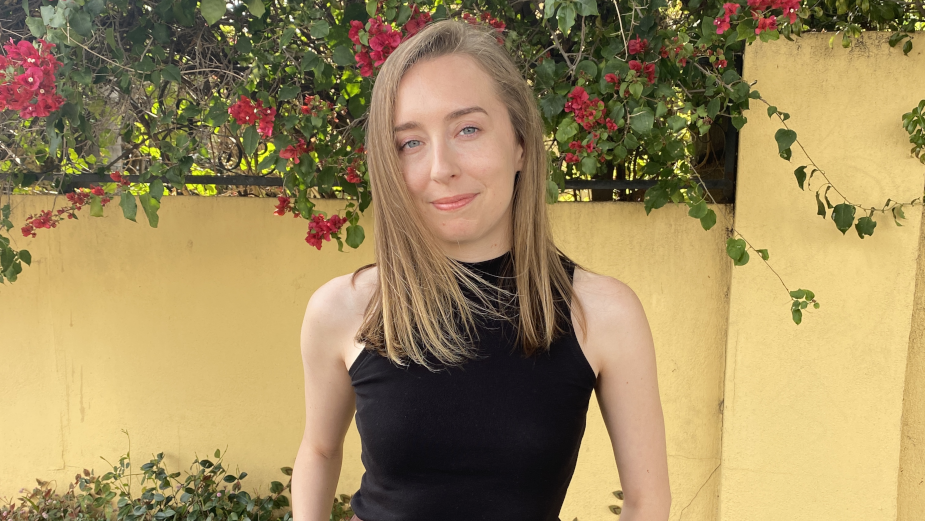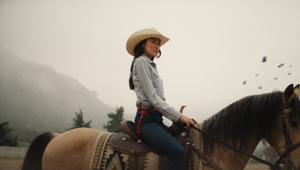
Finely Sliced: Why Editing Is Storytelling with Leah Turner

Born and raised across the country and across continents, Leah first fell into editing creating CNN student projects while trying to find a sense of community. Chasing after interviews and mailing in iMovie cuts, she found that community. After moving to LA to study film at USC, she worked on documentary series for National Geographic and the BBC. Leah then found herself in the world of advertising and has since worked with well known brands such as Apple, Nike, Google and Chevy. In addition to collaborating with brands, Leah is deeply passionate about documentaries and telling meaningful stories that connect us all.
LBB> The first cut is the deepest: how do you like to start an editing project?
Leah> Normally I like to look through the boards and talk to the director to get an idea of where we are going with the project. Once dailies begin to arrive, I watch everything through once, often while listening to music I’ve pulled trying to feel out the tone we want to achieve. While viewing, I make selects. Then I’ll go back through and organise those selects and then watch everything again and refine from there. Often times rearranging dailies leads to unexpected connections and helps find different paths for the story you may not have discovered if you only assembled once.
LBB> How important is an understanding of story and the mechanics of story?
Leah> Editing is storytelling, so understanding how to tell a story and create compelling characters is a fundamental part of what we do. More than that, our goal isn’t just to tell a story but to elevate the story. Personally, I’m always reading books, visiting art exhibits, and engaging with other forms of art to continually find news ways to connect with an audience.
LBB> Rhythm and a sense of musicality seem to be intrinsic to good editing (even when it’s a film without actual music) – how do you think about the rhythm side of editing, how do you feel out the beats of a scene or a spot? And do you like to cut to music?
Leah> I tend to think about rhythm as an emotional experience. If I were the character, when would I feel overwhelmed? Would the cuts be frenetic to achieve that? When do I want to sit in a feeling? Is this a beat we should also relish for a moment? In terms of music, I will watch down dailies with fairly wide ranging genres to see how I respond differently to the footage. It’s a wonderful challenge, though, to find a rhythm when there isn’t music. Spoken word and sound effects are often the unsung heroes of the edits, either adding to or creating their own sense of musicality.
LBB> Tell us about a recent editing project that involved some interesting creative challenges.
Leah> Recently I worked on an Army campaign with the incredible Rupert Sanders. Balancing historical accuracy with the desire to take creative liberties in service of the story was a definite challenge. Every sound, every piece of equipment, every colour on each uniform was vetted by a military historian. This often meant we couldn’t use the normal cinematic sound effects and had to get creative with building the emotional sense of being in the scene while still being historically accurate.
LBB> In the US we know that editors are much more heavily involved across the post production process than in Europe - what’s your favourite part of that side of the job?
Leah> Personally I love being able to engage with the composer to really craft fine details and collaborate on tightening the edit.
LBB> What’s harder to cut around – too much material or not enough? (And why?)
Leah> Not enough may be harder, but it also pushes us creatively to find new solutions or try new techniques.
LBB> Which commercial projects are you proudest of and why?
Leah> Some of the more intimate projects can sometimes stick with you the most. Individual stories that speak to our shared human experience are the ones I tend to come back to over and over again. One that comes to mind is a project called To a Different Tune where I had the opportunity to work on music producer Sango’s story.
LBB> There are so many different platforms for film content now, and even in advertising something can last anything from a few seconds to a couple of hours. As an editor, are you seeing a change in the kind of projects you’re getting from brands and agencies?
Leah> There has definitely been an increase in the need for shorter pieces of content. On the other hand, having the ability to showcase longer pieces online has meant that brands are usually willing to keep a longer edit alive as well.
LBB> Who are your editing heroes and why? What films or spots epitomise good editing for you?
Leah> I am always inspired by the incredible work of all of my co-workers. Anne Perri’s How to be a Person and Stewart Reeves’ and Neil Smiths Escape from the Office are both wonderful emotional rides. The best work is when you get to the end of a piece of content and immediately have to re-watch it because you need to understand why you feel the way you do.
LBB> How does editing in the commercial world differ from the film world and TV world?
Leah> Commercials are definitely faster paced all around. Everything moves quicker: productions, schedules, stories.
LBB> Have you noticed any trends or changes in commercial editing over recent years?
Leah> In the last couple of years, a lot of clients have become more aware of our place in society and that what we do has an impact. I’m excited that this seems to be bringing out new voices and new stories.















